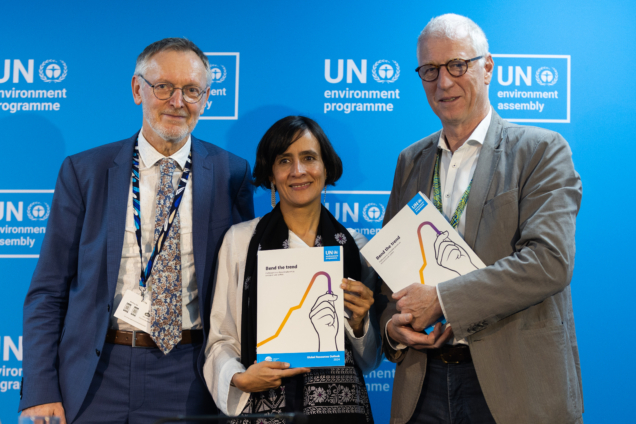Low-income countries reportedly consume significantly fewer materials and produce far fewer climate impacts, with a consumption rate six times lower and climate impacts ten times lower in comparison to high-income countries.
Over the last five decades, upper-middle-income countries have seen a more than twofold increase in resource consumption due to their expanding infrastructure and the transfer of resource-intensive activities from high-income countries. Despite these trends, per capita resource usage and associated environmental impacts in low-income countries have remained relatively low and stable since 1995.
This was captured in the 2024 Global Resource Outlook, released by the International Resource Panel during the sixth session of the UN Environment Assembly.
The report advocates for significant policy changes to enable humanity to live sustainably within its means and urges for a reduction of projected resource use by one-third while simultaneously promoting economic growth, enhancing well-being, and mitigating environmental impacts.
The report highlights a significant increase in resource use since 1970, rising from 30 to 106 billion tonnes, or from 23 to 39 kilograms of materials utilised on average per person per day. This growth has resulted in profound environmental consequences, with resource extraction and processing contributing to over 60 per cent of planet-warming emissions and 40 per cent of health-related impacts from air pollution.
Specifically, the extraction and processing of biomass, such as agricultural crops and forestry, are responsible for 90 per cent of land-related biodiversity loss and water stress, as well as one-third of greenhouse gas emissions. Similarly, the extraction and processing of fossil fuels, metals, and non-metallic minerals, including sand, gravel, and clay, collectively account for 35 percent of global emissions.
“The triple planetary crisis of climate change, nature loss and pollution is driven from a crisis of unsustainable consumption and production. We must work with nature, instead of merely exploiting it,” said Inger Andersen, Executive Director of UNEP. “
"Reducing the resource intensity of mobility, housing, food and energy systems is the only way we can achieve the Sustainable Development Goals and ultimately a just and liveable planet for all.”
Latest Stories
-
Africa Food Systems Parliamentary Network urges governments to increase investment in agriculture
6 hours -
AU and partners urge youth to get involved in efforts to transform continent’s food systems
6 hours -
Fire kills 3-year-old at Asawase-Dagomba Line in Ashanti Region
7 hours -
Paskal A.B. Rois: How Mahama inspires me
7 hours -
Complete abandoned projects in Akatsi North District – Chiefs to Mahama
7 hours -
Painter and sculptor B. Acheampong turning his passion for art into profitable venture
8 hours -
Presidential lodge, RM residency in Ashanti region left to rot away
9 hours -
Herty Corgie highlights the essence of gratefulness in ‘My Gratitude’
10 hours -
ANNOUNCEMENT: Joy FM temporarily goes off air January 11
11 hours -
Yango honored with two titles at the Technovation Africa Awards 2024
11 hours -
Aowin Traditional Council declares war on illegal mining with spiritual intervention
11 hours -
Leadership must ensure equity for all citizens, regardless of faith – Asiedu Nketiah
11 hours -
Prof. Alex Manu appointed Executive Director at Centre for Social Justice
11 hours -
Imminent changes within some key security agencies, state institutions, and its implications
11 hours -
There are more women than men, but there’s a man for every woman – Rev. Nana Yaa
12 hours

